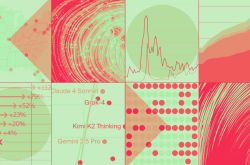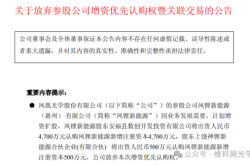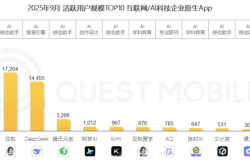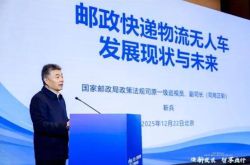Is iPhone 16 really worth it?
![]() 10/25 2024
10/25 2024
![]() 700
700

01
Is iPhone 16 really worth it?
The fate of iPhone 16 remains uncertain.
On October 20th, news of Apple's participation in Tmall's "Singles' Day" sale triggered a trending topic: "#iPhone 16 Officially Rarely Discounted by 1600 Yuan#." This shocked many consumers who had just purchased the new phone offline, with some exclaiming that "the sky has fallen."
While this isn't the first time Apple has discounted its phones, the adjustment just one month after release surprised many. After all, even the iPhone 15, which faced criticism, didn't see its first price cut until three months after launch.
However, upon closer inspection, it becomes clear that the iPhone 16 discount comes with a caveat – the use of a Tmall 500 yuan coupon. In other words, Apple's official website and offline retail stores haven't reduced prices; it's the e-commerce platform footing the bill to subsidize Double 11 shoppers.
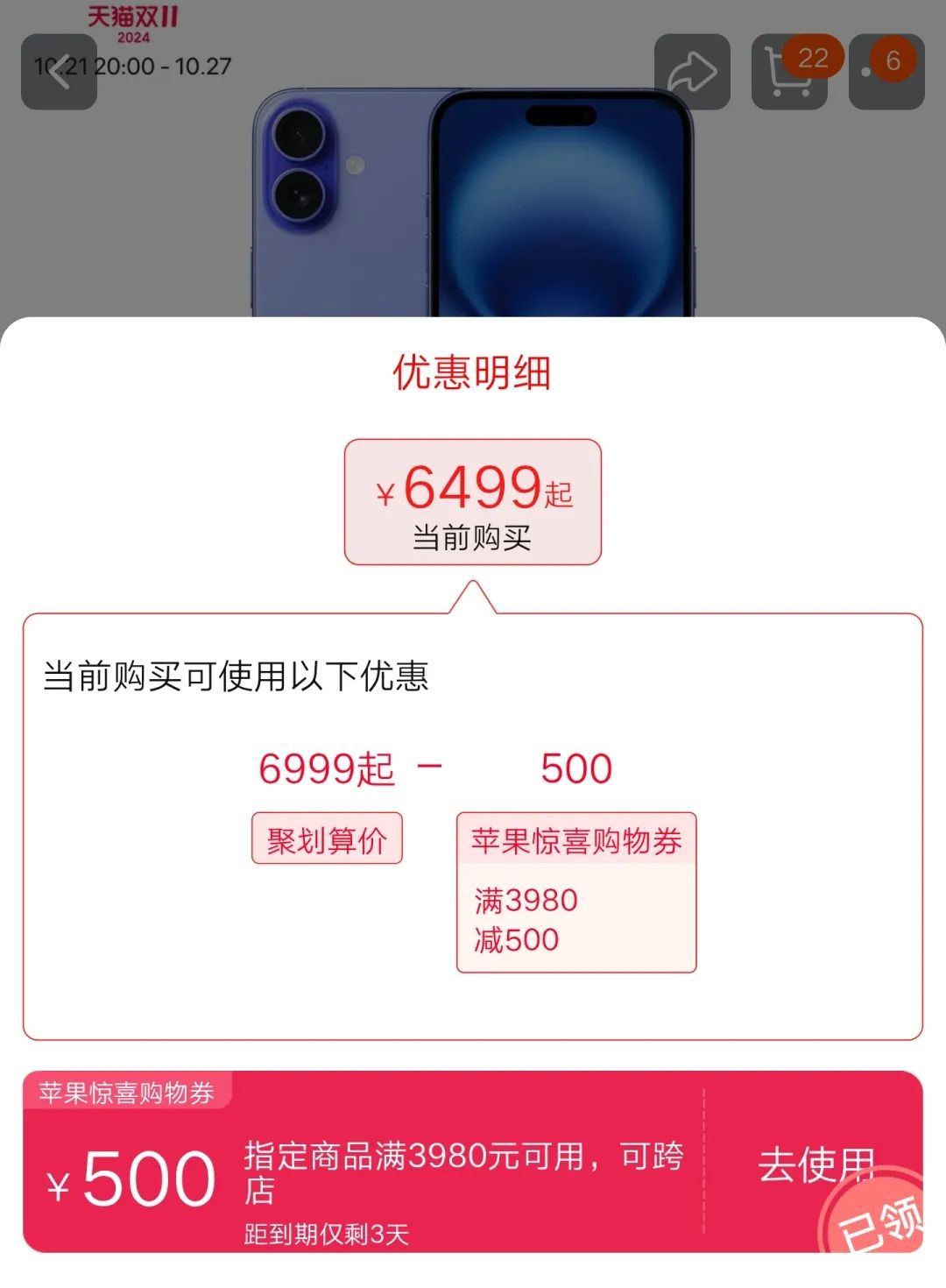
Naturally, Apple welcomes this development, even if it means being associated with a "below-par" launch and speculation about sluggish sales.
Objectively speaking, the iPhone 16 faces a less challenging situation than the iPhone 15 did at its launch. When Apple announced price cuts across the iPhone 15 lineup in mid-January 2024, dropping the base model's price into the 4,000 yuan range, it faced one of its toughest challenges yet. According to market research firm Counterpoint Research, sales of the iPhone 15 series in China over the first 17 days after launch fell short of those of the previous year's iPhone 14.
Meanwhile, Huawei's Mate 60 series, released around the same time, sold over 400,000 units in just two weeks. This milestone phone, equipped with domestic chips, posed a threat to Apple. According to analysts at Wall Street investment bank Jefferies, Apple's sales in China fell 30% year-on-year in the first week of 2024. Days later, Apple unusually announced price cuts for its new phones.
Many expected this sales slowdown to continue with the iPhone 16, signaling a waning appeal of Apple's products in China. Reports indicated that pre-orders for the iPhone 16 in its first week were just 37 million units, a 12.7% decrease from the iPhone 15's pre-orders the previous year.
But the tide soon turned. Counterpoint Research's latest report revealed that iPhone 16 sales in China's first three weeks of launch surpassed those of the iPhone 15 by 20% during the corresponding period. More importantly, sales of the premium iPhone 16 Pro and Pro Max models were robust, outperforming their predecessors by 44%.
On one hand, the iPhone 16 is off to a stronger start than its predecessor. On the other, Apple tacitly allows e-commerce platforms to heavily subsidize its official flagship store, creating a seemingly contradictory situation that begs questions about the company's true performance.
To rationalize this, one possibility is that changes in the industry landscape have rendered year-over-year comparisons less meaningful for Apple. 2023 marked the lowest point in the smartphone industry in a decade, with global shipments falling 3% year-on-year. However, since 2024, the smartphone market has gradually recovered, with global shipments growing 4% year-on-year by the third quarter and expected to surge further in the fourth quarter.
In a growing market, comparing current performance to the previous year's baseline may be less illuminating than tracking changes in market share. Adjustments to new product market strategies may reflect Apple management's recognition of data trends that necessitate safeguarding the brand's position.
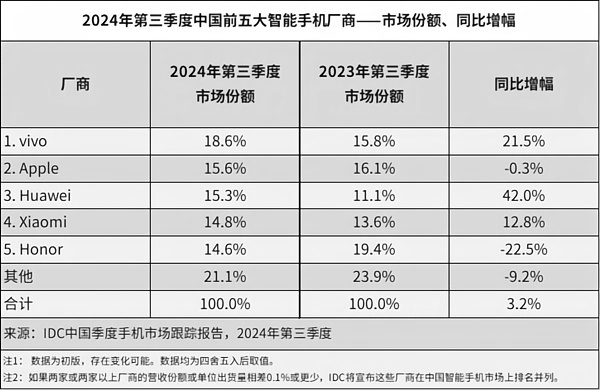
For instance, IDC's latest data shows that Apple's global sales increased 3.5% year-on-year in Q3 2024, though its market share fell 0.1 percentage points. However, its premium market rival Samsung fared worse. In contrast, Apple's sense of crisis in the global market may not be as acute. But in China, the picture is different – Apple's market share fell 0.5 percentage points in Q3, while Huawei's rose 4.2 percentage points and Xiaomi's increased 1.2 percentage points.
However, given that the iPhone 16 only went on sale on September 20th, Q4 sales figures will provide a more convincing assessment of whether the iPhone 16 is truly successful and whether Chinese consumers continue to favor Apple products.
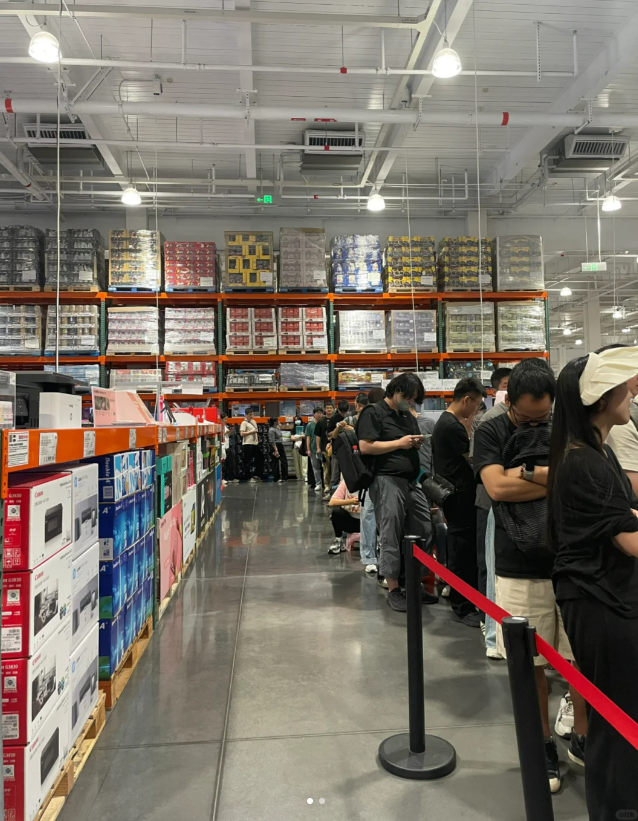
▲ Long queues for iPhone 16 at a Costco supermarket in Shenzhen on September 25th (Source: Xiaohongshu user @Gaby)
Doubts about Apple's growth prospects have intensified since 2024. Amidst this divide, it's worth delving deeper into the question: Has Apple truly fallen into a growth curse, or is it still more popular than public opinion suggests?
This will determine how we view price cuts and what they conceal.
Q4 performance becomes crucial. In fact, we've noticed that in addition to tacitly accepting e-commerce platforms' discounted promotions, Apple's new phones have quietly seen price reductions of up to 10% after government subsidies through some offline partnership channels.
Noise Reduction previously reported on the spectacle of Costco members queuing up early in the morning to snap up iPhone 16 series phones in Shenzhen, which lasted for nearly two weeks. With local government subsidies, the price of an iPhone 16 Pro Max could be reduced by up to 1,000 yuan. Complaints about iPhone 16 shortages echoed through Costco's member WeChat groups. Soon after, Sam's Club stores in Guangdong also joined the subsidy campaign for the iPhone 16 series.
Considering Apple's reported increase in production capacity for the iPhone 16 premium series supply chain starting in September, we tend to believe that Apple's current low profile is merely superficial, underpinned by strategic market adjustments.
02
Apple and Tim Cook's Bold Gamble
For Apple, the larger ambition behind price cuts may relate to its AI strategy.
Recently, Apple CEO Tim Cook visited Beijing for the second time this year, fueling speculation that his trip was tied to Apple Intelligence's (Apple's AI platform) impending entry into the Chinese market.
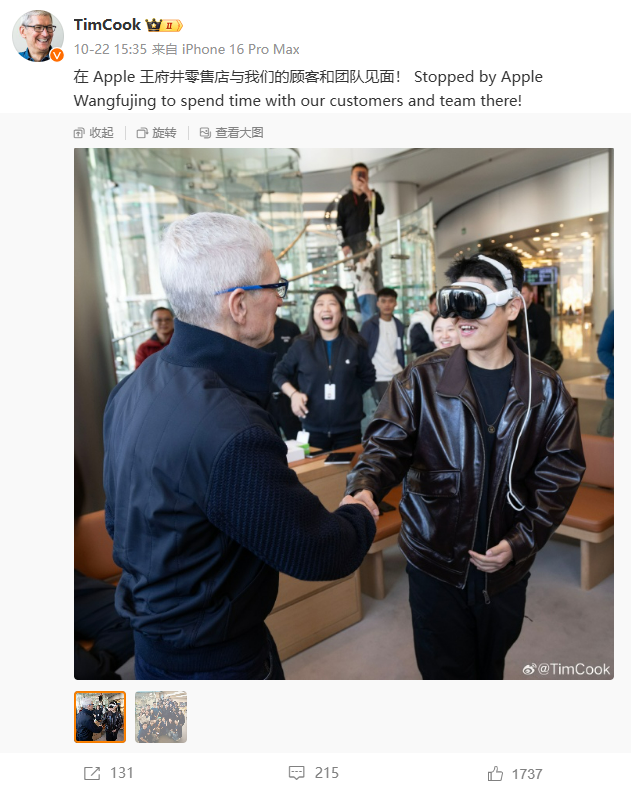
During Apple's fall event this year, Cook detailed how AI would seamlessly integrate with the iPhone 16 Pro series. Ideally, through Apple Intelligence, the AI capabilities of the iPhone 16 would tap into various phone modules, synchronizing user needs in real-time and facilitating tasks like tagging and transactions.
In a recent interview with foreign media, Cook elaborated on the application of Apple Intelligence, calling it another "big bet" for Apple, akin to the iPod's click wheel and the iPhone's touchscreen interface. "When we look back, we'll see this as an opportunity to embark on a different technological trajectory," he said.
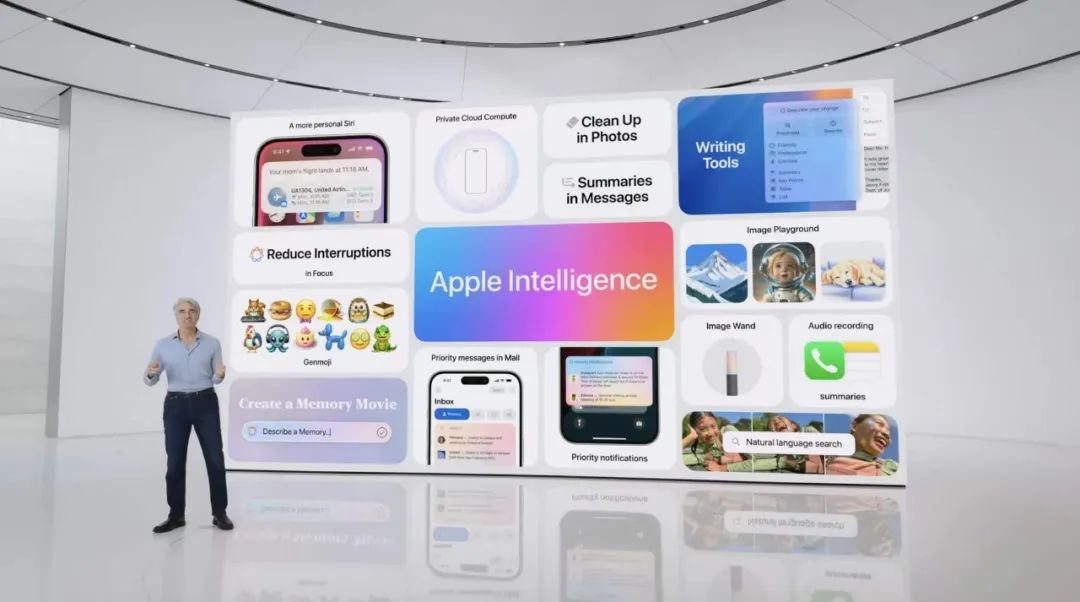
As one of the world's top-selling smartphone vendors, Apple sells seven iPhones every second. This immense base likely fuels Cook's confidence in AI.
We'll get an initial glimpse of the outcome of this bold bet on October 28th, when US customers of the iPhone 16 Pro series can experience these AI features firsthand. However, due to regulatory hurdles, Chinese users may have to wait until 2025.
How could Cook remain unfazed? In Q2 2023, China surpassed the US to become the world's largest iPhone market. Yet, it's also where Apple faces its fiercest competition, as domestic brands are growing at breakneck speed.
According to third-party data, in August this year, Huawei's domestic sales surpassed Apple's for the first time in 46 months. In addition to strong models like the Huawei Pura70 and Mate60 series, Huawei also leads the domestic premium foldable phone market with a 30% share.
Not only Huawei and Xiaomi, but also OPPO and vivo are launching new phones with designs increasingly resembling Apple's, such as right-angled frames and ultra-narrow bezels, all striving to mimic or even surpass Apple.

▲ A tech reviewer described this year's smartphone market as a "battle for the Apple flavor"
Faced with the onslaught of domestic brands, iPhone has little room for error. Every delayed response creates more opportunities for Chinese companies, particularly in the realm of generative AI.
OpenAI recently predicted that 2025 will be the year when AI agent systems finally become mainstream. However, Apple's AI progress has been sluggish, as evident in employees' complaints that the company lags behind the industry by two years. Apple's biggest rival, Samsung, launched generative AI features on its latest flagship phone in January this year, and usage exceeded expectations. In contrast, Apple Intelligence is still pending, ten months later.
Meanwhile, domestic phone makers have embraced generative AI as their biggest marketing point this year. For instance, Huawei's MagicOS 9.0 boasts an expansion of AI scene decision-making scenarios from 100 to 600. Vivo has integrated its newly released 3B large model into its latest phone systems, claiming improved performance in dialogue generation, information extraction, and more. Xiaomi's flagship phones also sport self-developed generative AI engines, enhancing photography, video editing, voice assistants, and smart recommendations.
While some argue that the current AI race is merely a gimmick to attract users, lacking real-world applications and failing to differentiate players in the short term, for domestic consumers eyeing AI-powered phone upgrades, the later Apple joins the fray, the higher the risk of losing their loyalty.
This must keep Cook awake at night.
In response to internal criticism that Apple's AI lags behind by at least two years, Cook emphasized that Apple prioritizes delivering the best user experience over being a market pioneer. Still, how many users will experience this "best experience" remains crucial for Apple.
From an AI technology perspective, the larger the user base and data volume, the faster AI iterates. Competitively, the pool of premium users seeking AI-driven upgrades is limited. Every percentage point lost to competitors erodes Apple's market position.
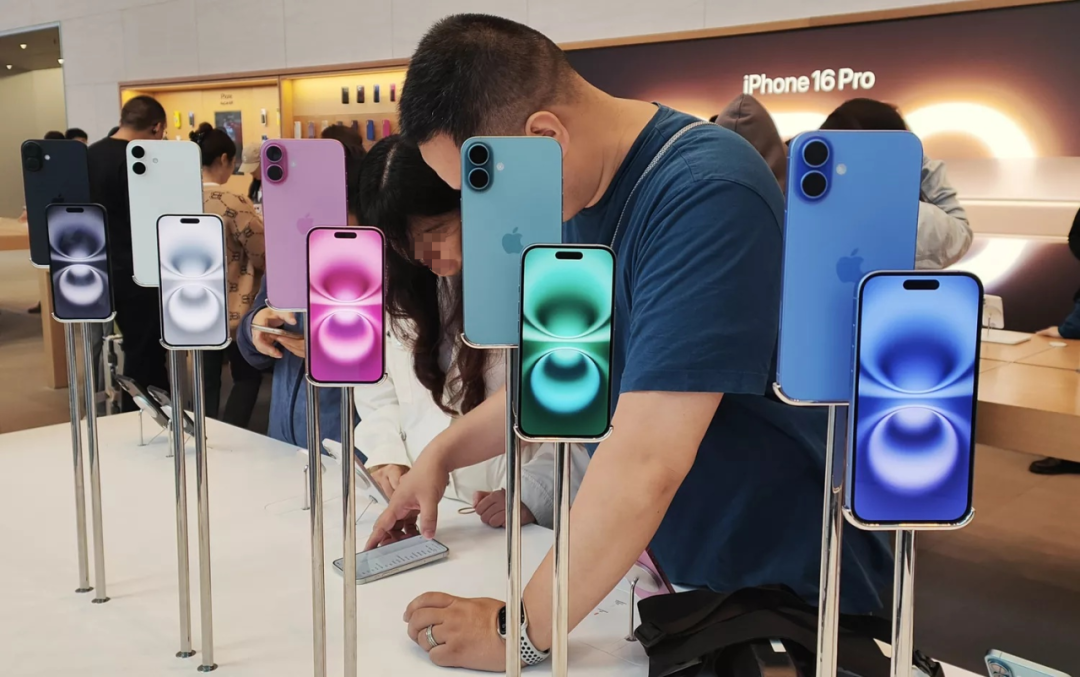
Thus, Apple's tacit acceptance of price cuts seems more like a strategic move. For both Apple and Cook, the concern may not lie solely in shipment volumes but in positioning the iPhone for greater growth potential at lower prices ahead of the AI feature rollout in China next year.
In other words, the success of Apple's AI gamble partly hinges on how quickly Cook can sell more iPhone 16 Pro series phones.
This poses yet another challenge for Apple. Cook needs more "chips" to play with.

